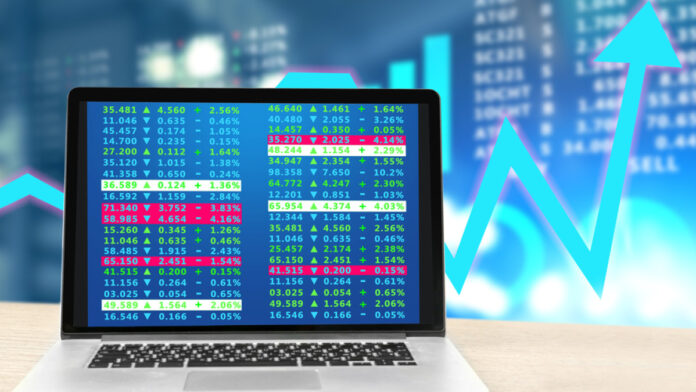
If you combine the trading volume and scope of the world’s biggest trading markets, the figure is in the tens of trillions of dollars. If you’re looking to trade stocks, forex, commodities or cryptocurrency, each market sees billions of dollars of activity every hour.
With such immense potential to make profits and carve out a second income stream, many beginner traders are keen to understand how these markets work in order to make money from them.
Today, we will discuss how it isn’t about your trading strategy alone – it’s also about understanding topics that drive these markets up and down. For instance, what is a recession, what is deflation or what is a blue-chip stock? If you begin to understand the underlying indicators, you can start to form a reliable method when trading.
1. Not understanding the markets well enough

When entering a highly volatile market, you must ensure your knowledge is deep and comprehensive before you move your hard-earned money into a live trading environment. There is some argument to be made that losing your money is one of the best but most painful ways to learn. However, you will do yourself no favors by blindly entering markets without sufficient knowledge.
Due to the rise of the internet, there are many helpful resources that you can consult. However, it is always best to research the quality of these sources. If you are trading in more traditional markets such as forex or stocks, seeking out literature from accredited specialists is a good start.
If you are trading commodities such as oil, gold or gas, you must understand the indicators that will cause the prices to rise and fall. For instance, gold is often seen as a reliable hedge against inflation. However, there aren’t many economists who would recommend holding gold as your only asset during an economic boom.
With knowledge comes experience. If you learn how to study charts and how to interpret trading volume data concepts, such as smart money, this is a solid beginning. Ensuring you keep an eye on international economic news that will affect all markets is recommended too. By taking this advice on board, you will build a foundation for an effective strategy.
2. Unable to manage emotions appropriately

If you’re a beginner, leaving negative emotions out of your trade is challenging. If you have just entered a market, you will be keen to keep an eye on your investment. If it dips or there’s negative news, you may sell up for fear of it falling further.
However, if you have performed the necessary due diligence and understand the market correctly, you shouldn’t let short-term dips affect your long-term strategy. Trading on negative emotions, or revenge trading, is one of the most common mistakes that traders make.
This isn’t specific to beginners, either. Professional traders who allow themselves to get dragged into the negativity of a trade or a negative market sentiment also risk trading on emotion.
You can help mitigate this by using a solid risk management strategy that will usually cover several components. First, an effective take profit and stop loss limit you set yourself before entering the trade will help shield you from the most volatile market activity.
This is especially apparent in highly volatile assets such as Bitcoin and other cryptocurrencies. Another method people use is dollar cost averaging – this is when you continue to buy your asset as the price dips so that you can lower your average point of entry.
3. Using too much capital

The internet has given us accessibility to many markets but it has also made some vulnerable people susceptible to schemes regarding getting rich quickly. For example, it won’t take long to come across an advert on social media from a “professional” or “retired” trader on their yacht, having retired at the age of 35.
They want to sell you their course, make sure you get rich just like them and charge only $1,000.
Usually, if something sounds too good to be true, it is. However, there are no shortcuts if you are in the world of trading. It is a painstaking journey involving financial loss, excessive and unsociable hours of work and highly intense trades, which can cause you to lose much of your capital.
Therefore, making sure you invest solely with money you can afford to lose is crucial. No trader wants to lose money but you should be prepared for this eventuality. It is likely that you will also experience some losses, especially if you are just starting. Therefore, using only a portion of your wealth instead of the whole lot is crucial, so you don’t experience financial difficulty.








